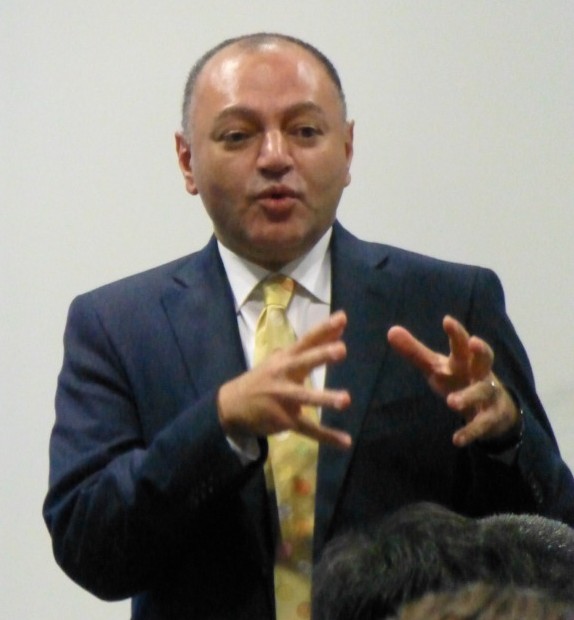
MasterCard pushes for greater open payment architecture
24 February 2016
by Jonathan Andrews
Jonathan Andrews spoke to Hany Fam, President, MasterCard Enterprise Partnerships, during the Mobile World Congress in Barcelona
How has the mobility management partnership with C40 progressed since it was announced in December?
Working with Masabi we have won an award for the ticketing system we placed in Athens as the world’s best ticketing programme. This works in 19 cities at the moment and we are working with them systematically across the board. We will shortly go live with Cubic out of San Diego and in New York with Masabi as well.
There are a number of new cities that we will shortly make public. Two in Asia-Pacific and there are a couple in North America, plus a backlog of some 40 cities.
Do you see yourselves working more with other private sector leaders in this field?
Individual partnerships are great but it is the integration of all of them that is really the game changer here, and they must address three fundamental points. One is nationalism. Countries and cities want their own unique system because they want something different. This is something we fundamentally disagree with because there are 300 orphaned systems already out there and they contribute to a cost base of a minimum of 15 percent in fare collection.
With open architecture–like what we have done in London, Athens and Chicago–we can reduce that cost by half, and that is just to begin with. The nationalism agenda is very short sighted. Selfish companies that want to lock cities into long-term maintenance contracts usually peddle it. They don’t have the wherewithal to see past that. That message has got to get out there more forcefully. National systems fail, they are expensive and are not in the interest of end users.
The second thing is the openness of being able to use a payment card or a phone anywhere in the world. Today in London there are 9 million digital transactions via phones from 90 different countries and cities around the world. The charm of London is I can just pull out any bankcard whether it is my English or US one, or even use Apple Pay on my phone. Increasingly cities are asking us to do not only undertake risk management for them but also fare calculations. People ask us, ‘Who are you competing with in this space?’ and we are not about the competition, as we don’t have any competitors right now. There are fundamental reasons for that, it’s not arrogance, we are an enabling platform for everybody, that is our DNA. We are a technology company that happens to have payment capabilities but we are, at our heart, an enabling network.
Are cities listening and taking heed?
Every city is listening but with the national governments it is a longer conversation. I was in Delhi and Mumbai last week which see up to to a million people a day in some stations. We’ve been really worried, as have the operators and the cities, about the approach taken by the government for their Smart National Common Mobility Card. It is an architecture that is mind boggling and terrifying that uses two different chips and seven different purses. That is just madness. So we have been talking with them and slowly getting them to change their thinking in partnership with the operators and with the cities who get what we are saying. You don’t need any of that. You literally need one of these things [pulls out a contactless card], which the bank issues. We can do dynamic fare calculations, manage loads, and enable the platform for all types of payments.
Is there too much ‘noise’ around the smart cities concept?
There are a number of companies talking about this space but we see very few that are actually quantitative and disciplined about how they are thinking about it.
We will start thinking about a description that has our messaging to it as opposed to spending three quarters of the time explaining what a smart city is and what is different. It is a rarefied space because most companies, frankly, are either self-serving cause they want to lock cities into a programme or they don’t have the wherewithal to think as holistically as we do.
I suspect we will actually get away from the smart cities label and start thinking about a space where we can set the agenda and the dialogue in that crowded space.
Are you looking to partner with other city networks to increase your voice in this field?
Partnerships like that with C40 matter. They are big advocates of this as are Masabi, Cubic and Parkeon. Even the cities are getting it. Shashi Verma at Transport for London runs around the world telling cities this is the way you do it. They are a living case study. In London within one year, 33 percent of payments shifted to contactless cards, from the Oystercard system that had been in place 12 years before that.








